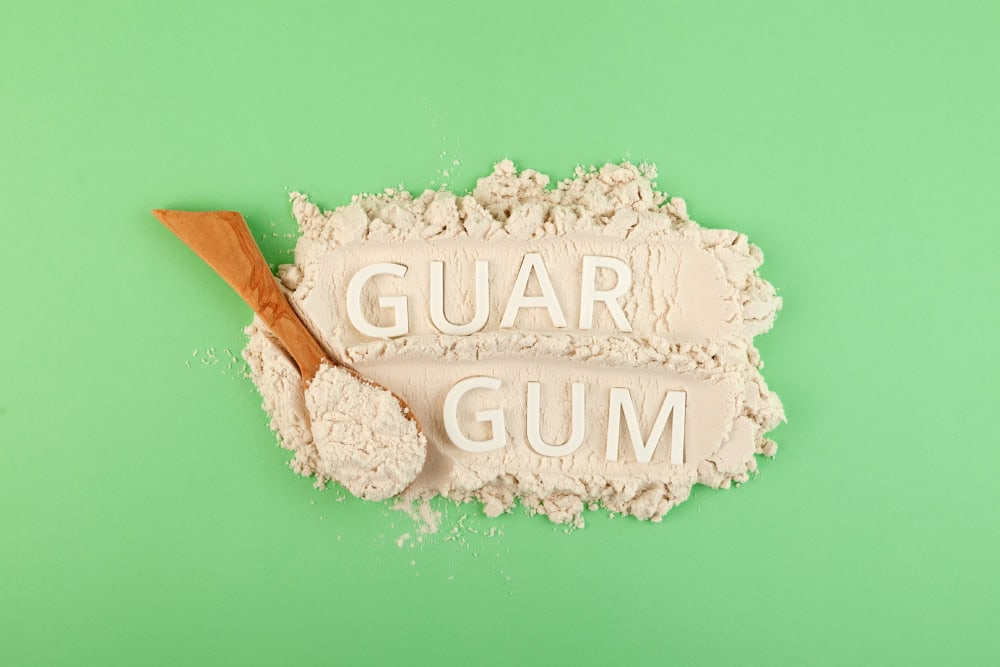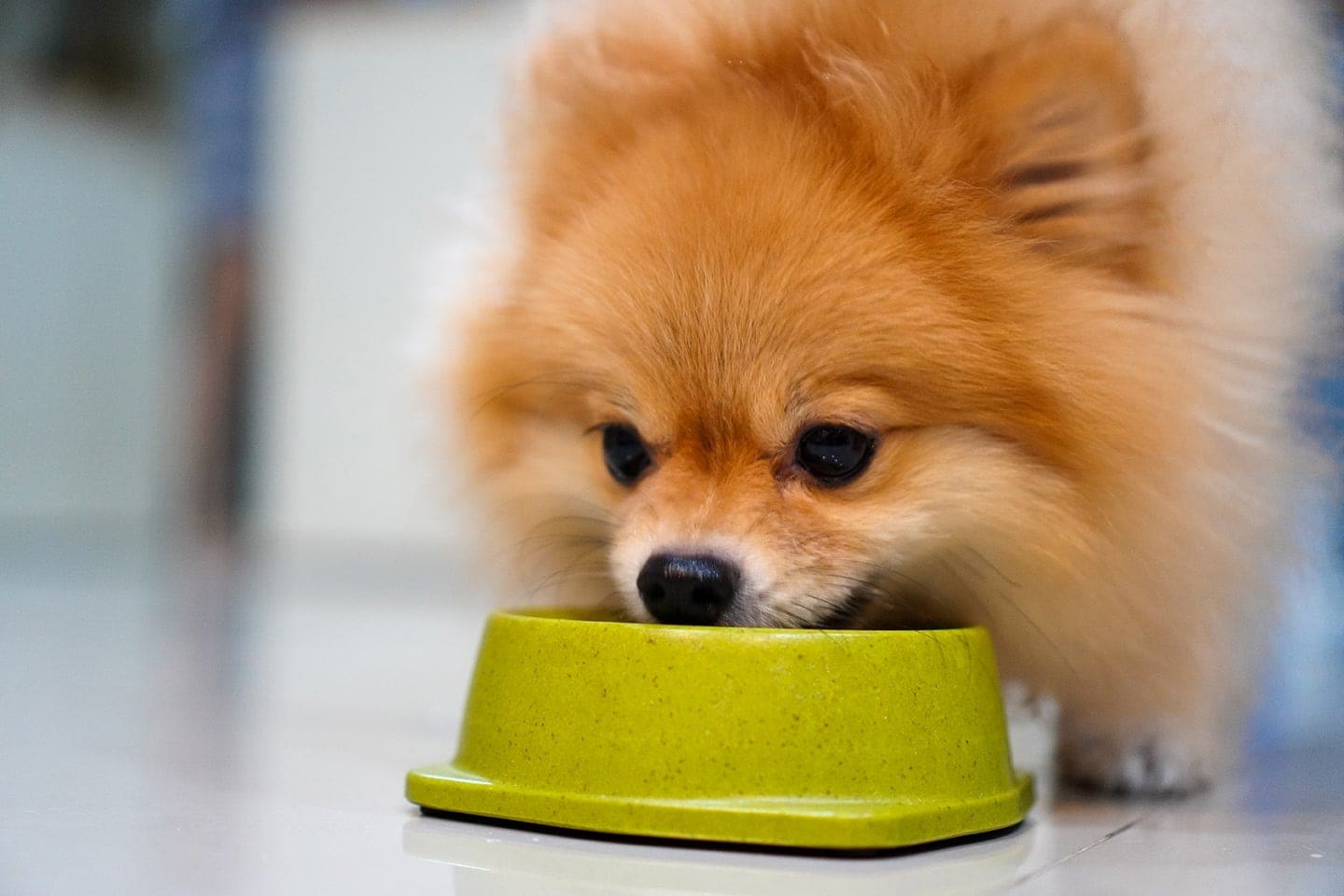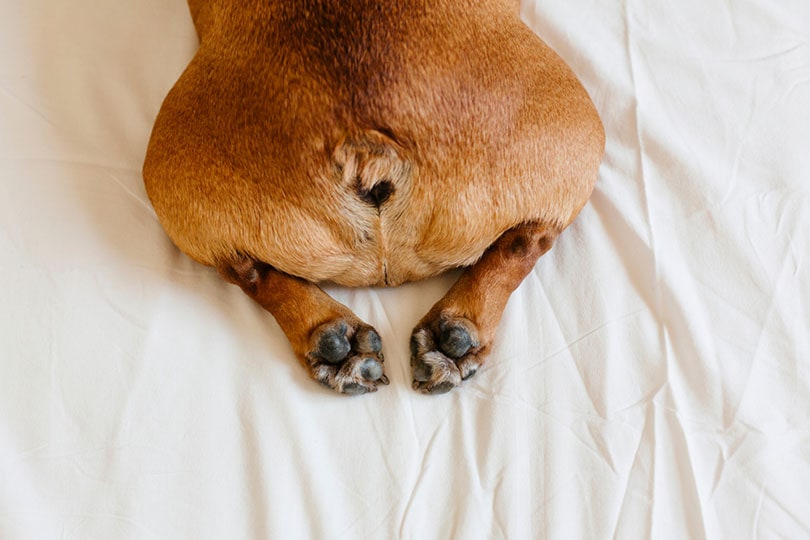Can Dogs Eat Guar Gum? Vet-Approved Nutrition Facts
Updated on

If you’re the type of dog owner who likes to read pet food labels, you may have noticed an ingredient called guar gum listed and wondered what it is. You may have also found some foods that advertise that they don’t contain guar gum, causing you to worry about feeding it to your dog. According to available research, it’s safe for most dogs to eat guar gum in the amounts commonly found in pet food.
In this article, we’ll go into more detail about guar gum and how it is used in dog food. We’ll also look at what the science says about the safety of this ingredient. Finally, we’ll review whether guar gum presents any health concerns for your dog.
What Is Guar Gum?
Guar gum is a powdered product processed from legumes known as guar beans. It is commonly used in human and pet foods as a thickening agent. Ice cream, soup, cheese, yogurt, and salad dressing frequently contain guar gum.
Canned dog and cat food often contain guar gum or similar products to help them maintain their shape and texture.

Is Guar Gum Safe for Dogs?
Guar gum is a legal human food additive in the United States and the (often stricter) European Union at controlled levels. It is not considered toxic or cancer-causing in adult humans. Safety has also been evaluated in animals eaten by humans such as chickens, fish, pigs and cattle.
Unlike in human foods, there is limited research regarding recommended levels of guar gum in dog diets. One study suggested 0.5% guar gum was enough to firm up canned dog food. However, guar gum is sometimes used alongside other thickening agents, which may alter the recommended amounts.
Guar gum has been shown to decrease blood sugar and cholesterol levels in humans and (inconsistently) in dogs. So far, the only scientifically supported health concern regarding guar gum is that it can interfere with protein digestion in dogs. However, the guar gum permitted in pet food doesn’t cause enough interference to negatively impact your dog’s protein levels.
Adverse effects in humans include skin irritation, irritation to the respiratory tract if inhaled, or gastrointestinal upset from eating large amounts. These effects could possibly be seen in dogs under these unlikely circumstances.
Why Do Some Dog Foods Advertise That They Don’t Contain Guar Gum?
As we’ve learned, guar gum is considered safe, non-toxic, and not cancer-causing by the US Food and Drug Administration and the European Food Safety Authority. Because it’s found in so many pet foods, the brands that avoid it are most likely trying to distinguish themselves from the competition. They may also be appealing to dog owners who don’t like feeding processed ingredients to their pets.

Conclusion
Like many ingredients in dog food, guar gum has pros and cons. However, there’s usually no reason that healthy dogs need to avoid it. Talk to your vet if your dog has any chronic medical conditions, particularly digestive issues, to make sure guar gum is okay for them to eat. Keep in mind that the pet food industry is highly competitive and increasingly lucrative. It’s vital to distinguish science-backed health or nutrition claims from those made simply for advertising purposes.
Featured Image Credit: AB-7272, Shutterstock













